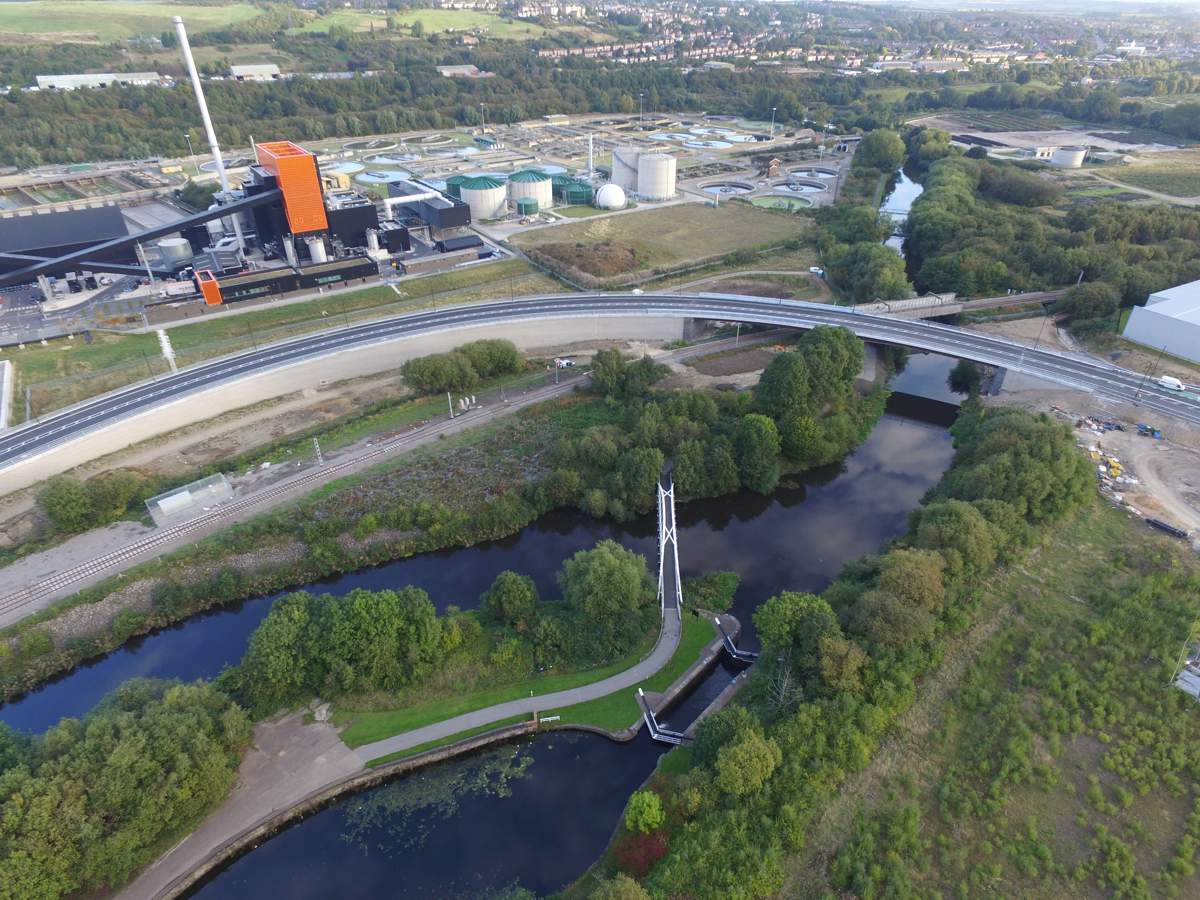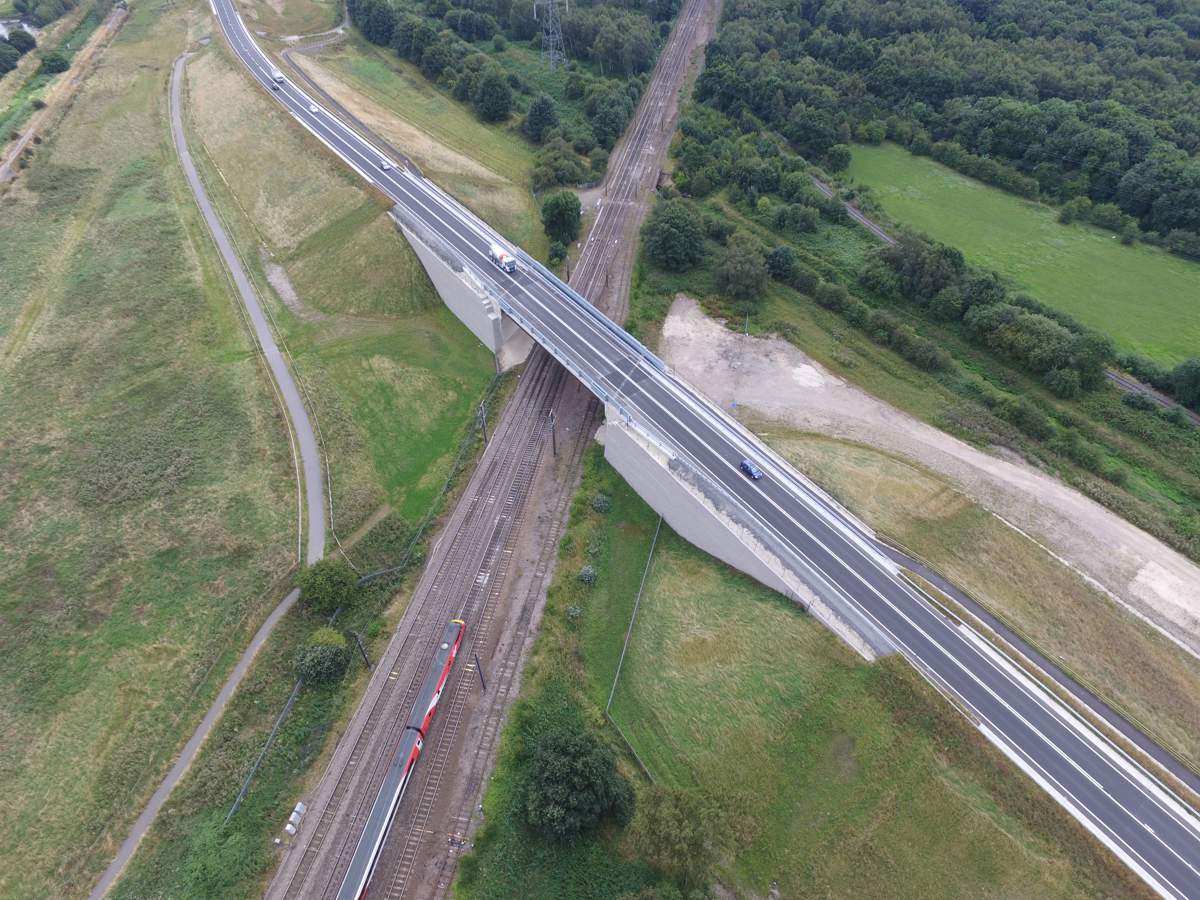Anderton Concrete looks at the UK infrastructure market and its future
Tim Fields, Structural Projects Manager at Anderton Concrete, discusses the current challenges and opportunities facing the infrastructure industry, while also discussing key market drivers expected going forward:
“Throughout 2021, the government continued to place infrastructure at the centre of its Build Back Better initiative as a key driver for economic growth. With latest Glenigan data forecasting civil engineering project starts to increase by 3% for the year when compared to 2020, it’s safe to say the industry is continuing to push forwards at a steady pace.
“This acceleration in project starts throughout 2021, in addition to the additional 2% rise forecast by Glenigan for 2022, has augmented the requirement for new approaches to construction. This includes the need for building materials that increase on-site efficiencies, while also providing cost-effective and sustainable methods of construction.
“In addition, receiving necessary building products in the shortest possible lead times is essential to ensuring contractors have the materials they require on site, when they need them, to ensure project schedules are not delayed.
“In response to this, Anderton Concrete has considered a wide variety of possible avenues to ensure optimal performance of products, while continuing innovation and meeting the growing demand for more environmentally-friendly technologies, that provide the same levels of performance that has come to be expected. Alongside these considerations, are a continuing increase in demand for bespoke solutions across a wide variety of developments which has led Anderton Concrete to increase its bespoke manufacturing capabilities substantially, helping meet demand and contributing towards environmental considerations.

“Investment at Anderton Concrete’s Thornley manufacturing facility has seen the installation of a new crane system which has facilitated the development of units up to 10 tonnes, double that of previous capabilities. In addition, the entire manufacturing process has also been reconsidered, including a new factory layout that further increases efficiency of production, especially on repeat products.
“Adopting this bespoke approach to the construction of products is also supporting the decarbonisation of the UK’s infrastructure network, which has continued to be a key influence for the sector throughout 2021 and is set to continue to be the focus throughout 2022 and beyond. By adopting an individual approach to each project, the manufacturing process can be streamlined to suit specific orders and demand, therefore creating less waste, whilst utilising fewer materials and creating individual lead times to suit each project.
“Developing lower carbon products lies at the centre of achieving the government’s Net Zero targets, which enter the infrastructure sector largely through regulations set by National Highways. With the demand and need for environmentally efficient infrastructure technologies involving every aspect of the industry. Achieving a net zero infrastructure industry will continue to be a high priority for the sector throughout 2022, with efforts to reduce carbon emissions being rapidly accelerated through continued product innovation and new regulations.
“However, whilst manufacturing products with lower embodied carbon, without compromising on quality, cost and efficiency is a priority, there are additional factors pushing the continued requirement for product evolution. By partnering with manufacturers to collaborate on the design, installation, and maintenance of a new generation of concrete products that place quality and performance at their core, civil engineers can meet the most demanding site specifications, whilst simultaneously setting a new standard throughout the industry.
“For example, whilst precast concrete solutions may be perceived as being potentially carbon heavy due to its production processes, Anderton Concrete has been proactively working with industry partners to produce products that feature significantly reduced carbon and have a lower overall weight than similarly competing technologies.

“This innovation has seen Anderton Concrete reduced the embedded carbon by at least 40%, removing a proportion of a product’s mass and incorporating alternative materials into the manufacturing process. All of this has been achieved while maintaining the desired performance properties associated with trusted precast concrete.
“This carbon reduction was achieved having been approached and asked to investigate ways of achieving a more environmentally efficient construction from a leading industry partner and Anderton believes this technique can be applied across a number of product manufacturing processes in order to further future-proof its technologies and set a new industry standard.
“As well as streamlining lead times through bespoke manufacturing, an additional benefit of precast manufacturing by a UK supplier such as Anderton Concrete is that there is no concern over lengthy delays due to supply-chain issues. Recent years have seen Brexit and Covid-19 disrupt international supply chains and cause lengthy delays to projects and while there is some normality returning, the concern over further disruptions is prominent. That is why Anderton believe a UK-based manufacturer like itself that can offer bespoke manufacturing, a full range of technologies and a growing environmentally friendly portfolio, is the best choice going forward.
“So, with sustainability high on the industry agenda, and alongside a backdrop of recovery from material, supply chain and product availability issues experienced throughout 2021, now is the time to partner with leading manufacturers to achieve the highest standards of efficiency and sustainability.”




























